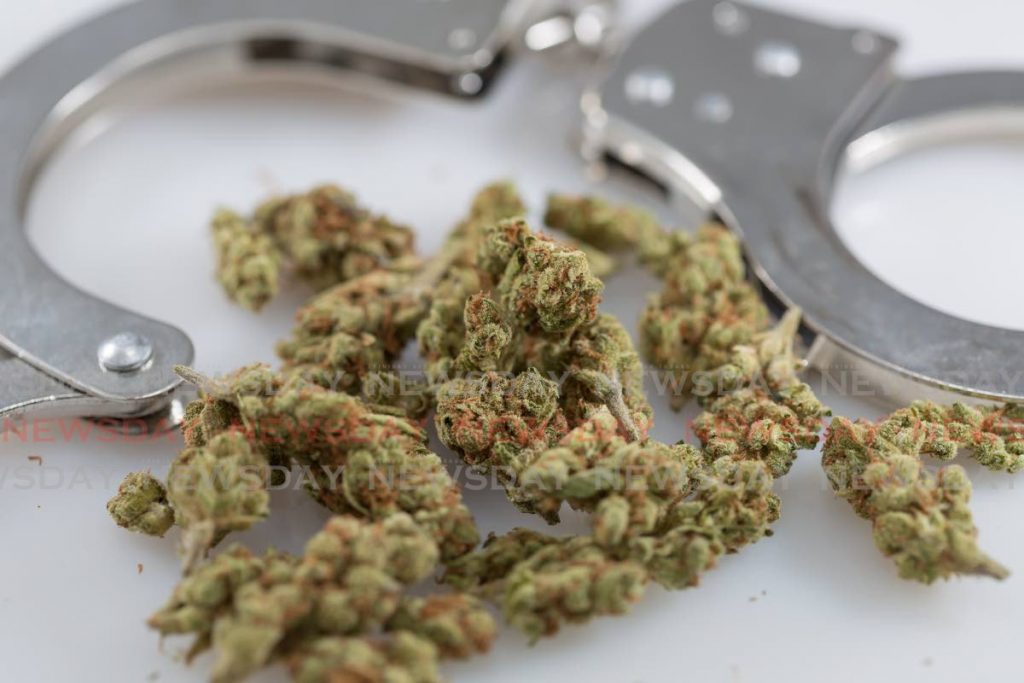Here’s how every day can be Christmas

kmmpub@gmail.com
The looks on the faces of the hundreds of mothers, wives, sisters, fathers and brothers waiting outside the Port of Spain prison this week to see loved ones for Christmas was enough to put Tiny Tim’s sympathetic expression to shame. They have some hope. The decriminalisation of cannabis has shown how the extension of even a small freedom can transform lives.
The opportunity goes well beyond some happy grass. The State can seize this momentum to begin a great unravelling of red tape that will free us to both work and enjoy life to the immense potential.
Each time you are frustrated in an effort to open a bank account, obtain a government stamp, or wait in a line, your freedom is being robbed from you as surely as the Grinch snatched the roast beast from the jolly souls of Whoville.
Just as much as a life-changing diagnosis or the blade of a cutlass, this is robbing us of our lives. The laws against cannabis have consumed hundreds of thousands of hours and millions of dollars to throw thousands behind bars; yet they are just one example. The historic weight of colonialism has saddled us with endless rules and strictures that prevent us from self-actualisation.
The most dangerous are not ones that easily grab the public attention, but the boring rules that few can muster the passion to oppose: labour laws, planning permission, occupational licensing, tangled courts, ambiguous and opaque authorities.
These laws and institutions, designed to safeguard us from ourselves, have instead robbed us of time and treasure on a colossal scale, and spread a culture of risk aversion well beyond the State and deep into the DNA of our private sector.
Our thicket of regulations doesn’t just make life more difficult or frustrating. It removes opportunities for us to build close relationships with family, friends and loves. Christmas, trite and consumerist though it may have become, now remains one of the ever-shrinking periods of time during the year that we have time to simply smile and value other people.
Stifling regulations have been put in place to protect us, but what is the true cost of that protection as measured against the probability of a threat? I’m willing to bet that in almost all cases, and in the absence of data that generally prevails in society, we are falling prey to the age-old human bias of overestimating the probability of “something bad happening”.
A national programme to review and reduce all regulations will not result in anarchy or allow insidious interests to take control. Digital platforms very easily allow for audits if they are put in place. What it will do is ensure that we design for the greatest benefit of the greatest number; instead of to protect against the small probability of perceived threats that few can measure.
In the government and in our companies, let us start the year by thinking very hard about whether those forms and those lines and those regulations are not stifling more than they protect. We can go through one by one and scrap wholesale those that don’t make sense.
The cannabis decriminalisation is a reminder that it is high time we did this. Streamlining rules agency-by-agency will be immensely popular with voters. And managed right, a programme of deregulation will, far from being a threat to the civil service, will free our public servants to be agents of compassion and enablers of growth.
Our private organisations can follow. Tech giants like Apple and Google repeat a mantra of “delighting” their customers. As hyperbolic and unrelatable as that may seem, many local companies can at least start by not actively preventing customers from buying or experiencing their products – a not uncommon occurrence here.
One of the world’s longest running studies of happiness is an experiment conducted on a Harvard freshman class that has now run for more than 80 years. For all its depth and rigour, its conclusions have been almost absurdly simple: the single greatest predictor of self-reported happiness was having a few close relationships. More freedom in society will grant us the precious time we need to develop those meaningful relationships.
So as we bask in the glow of holiday satiation and new found freedoms of fine stupefaction, consider this: embrace the principles of liberty, and every day can be Christmas.
Kiran Mathur Mohammed is a social entrepreneur, economist and businessman. He is a former banker, and a graduate of the University of Edinburgh

Comments
"Here’s how every day can be Christmas"